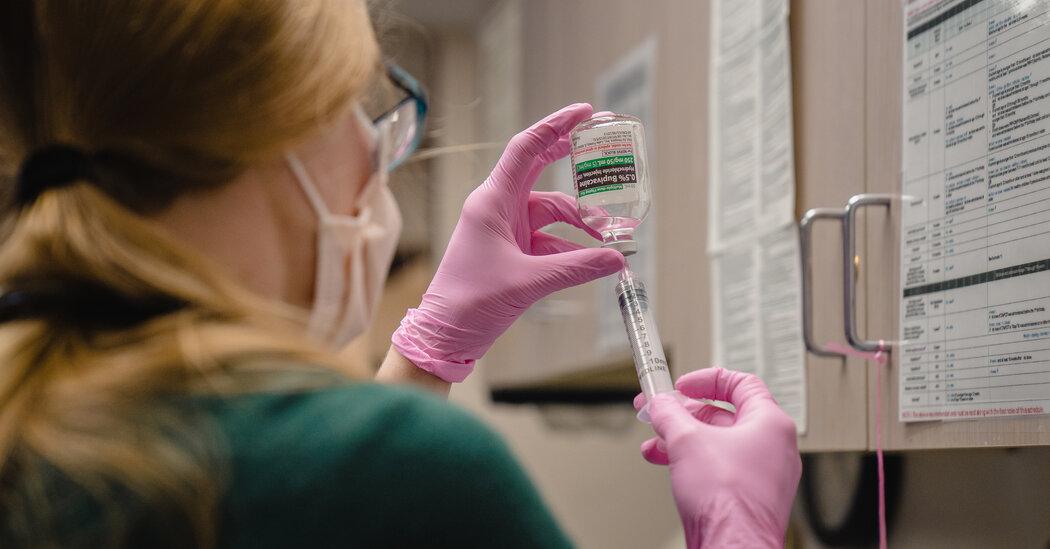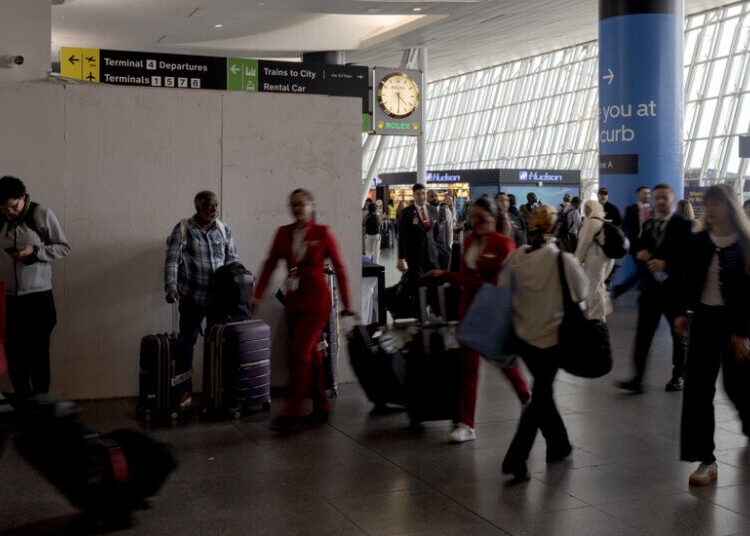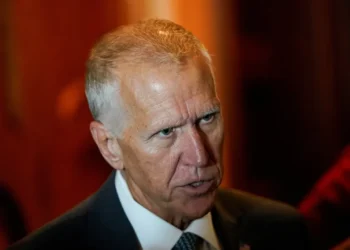To the Editor:
Re “Soaring Health Costs Keep Pressure on Trump” (news analysis, front page, Nov. 12):
Reopening the government without acquiescing to Democrats’ demands to extend health insurance subsidies may seem like a win for President Trump, but as your article points out, it leaves Republican lawmakers with the blame when health insurance premiums skyrocket for millions of Americans.
Now, instead of the G.O.P. getting credit for solving the problem, voters will feel a surge of anger toward Republicans when they see an even larger chunk of their paychecks going to health insurance.
Mr. Trump’s only idea for solving this crisis is to give money to Americans? (“We want a health care system where we pay the money to the people instead of the insurance companies,” he told reporters in the Oval Office on Monday.)
That’s exactly his solution for farmers suffering under his tariff policies, and it echoes his idea to give Americans checks for $2,000. He seems to think that paying off people will solve the problems he has created.
By the time of the midterm elections in 2026, so many Americans will be suffering — from inflation that exceeds 3 percent, huge increases in health insurance costs and tariffs continuing to hurt farmers, businesses and consumers — that Republicans may be asking themselves what they achieved with the longest shutdown in American history.
How bad does life have to get before Americans realize that voting for Mr. Trump was a mistake?
Adam Michels
San Francisco
To the Editor:
Health care is fast becoming unaffordable for ordinary Americans. President Trump campaigned on lowering prices and the overall cost of living, yet Affordable Care Act premiums keep climbing beyond what working families can manage.
We’re nearing a health care collapse. Millions could soon lose coverage, driving up costs even further for those who remain insured. People are already choosing between paying their rent or their insurance — soon, they won’t be able to afford either.
Health care shouldn’t be a privilege or a gamble. Without decisive action to rein in costs, the system will continue breaking under its own weight.
Mateusz Marcinowski
Easthampton, Mass.
The writer is a psychotherapist.
To the Editor:
Re “How Yielding on Shutdown Can Be Win for Democrats” (news analysis, Nov. 12):
Surely this so-called cave on the part of several Democrats can be seen as the party of compassion taking action when it became clear that, on top of all his other crass firings and insults, President Trump was actually prepared to starve the poor rather than back down on the issue of health care subsidies.
L. Rigby
Jefferson, N.Y.
Art in New Spaces
To the Editor:
Re “New Life Fills Empty Subway Shops (The Arts, Nov. 4):
It’s thrilling to see artists activate vacant space in our subway system in clever ways — evidence that New York City is bursting at the seams with creativity.
This is what inspired our Queens Cultural Mapping Initiative at Flushing Town Hall, for which we interviewed more than 150 artists, cultural leaders and organizers across the borough, including Los Herederos, who were featured in your article. Among many questions, we asked them: What are the critical challenges your cultural organizations face?
Given artists’ eagerness to occupy underground storefronts, their answers were unsurprising. Ninety-five percent of those surveyed named access to affordable space. Space is a concern at every level of the arts ecosystem, from studios to administrative offices to performance venues. Costs are high, and availability is limited.
The artists we spoke to reported they were repurposing spaces like subway stations, garages and bars because they simply could not get access to the more traditional spaces that might better serve their needs and the public. So while their inventive use of nontraditional spaces warrants admiration, it should also be recognized for what it is: a survival strategy.
Ellen Kodadek
Queens
The writer is the executive and artistic director of Flushing Town Hall.
What A.I. Isn’t
To the Editor:
Let’s get a few things straight: A.I. neither hallucinates nor makes stuff up. Humans do that. A.I. companions don’t get jealous or express love. Humans get jealous or express love.
A.I. is not your therapist, or your lawyer, or your financial adviser, or your romantic partner. A.I. does not think. A.I. does not reason. A.I. does not have emotions.
A.I. does not give advice. A.I. does not care about you, or like you, or dislike you, or hate you.
A.I. is incapable of understanding that you are a human and that it is a software program. A.I. is not self-aware. A.I. is not, and never will be, sentient.
A.I. is a tool that gives computer-generated responses to human queries based on variable algorithms. Get it?
James Nesci
Tucson, Ariz.
The post Trump and the Rising Cost of Health Care appeared first on New York Times.




